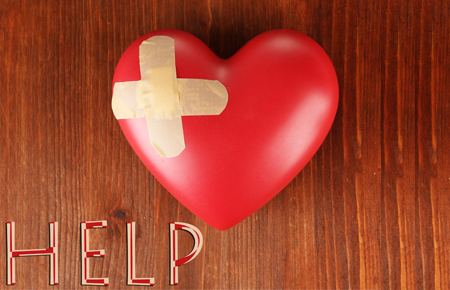This is the thing, breaking up from a relationship is hard and complicated. Whether short or long or somewhere in between, the undoing, the disentangling, the process of going from duo (or more) to solo can be a difficult and heartbreaking process. The family law aspect of a break up is actually a much smaller and distinct process usually involving the disclosure of financial statements, the listing of all assets and debts, the determination of properties, the calculating of numbers to address spousal and child support, and the discussions and negotiations or litigation around children, including where they will live, with whom and under what schedule, and how all decision making and co-parenting will occur. All of these things during a separation are challenging and mostly fraught with “non-legal” but real, important and fragile human issues. These issues will continue to be navigated far beyond the legal process or any agreements, orders or negotiations.
If you’ve ever gone to a family law lawyer and tried to go into the “why” of the break up, you will be told that in British Columbia we have a “no fault” system – which essentially means “why” you broke up with your partner is not going to be legally relevant. Hard to believe…but true. The affair after 30 years of marriage, the realization after 5 years that you and your partner are just not compatible, the 12 years of on and off again couples counselling that went nowhere, the betrayal of being told your partner never loved you, the lies, the dreams and hopes of your future over, the worries of your finances, the fear of starting over, the sacrifices, the living on egg shells, the pain, the feelings of sorrow and anger and jealousy, fear and loss…there is not much if any room in the legal process for these big and human feelings of a break up.
There is unfortunately and regrettably a lack of compassion built into the institution of law – a fiction of creating a space void of feeling and humanity in an area of law, family law, that at its root is about people feeling (in most cases) strong enough emotions to love each other, commit to each other and create families together. These are not (always) matters of the head, rational, thought out, debated and decided logically. These are (often) decisions of the heart, emotional, intuitive, reactionary, sensory, expressed, immediate and overwhelming.
The affair, the violence or cruelty, or the fraudulent circumstances under which you entered your marriage may if provable with evidence result in you being able to get a divorce in a shorter time frame or in some circumstances for violence might be considered in future parenting or co-parenting arrangements or decisions regarding orders for protection; however, family law is generally not invested in the “why” of the break up or the resulting emotional and psychological chaos that emerges from trying to move forward after a break up.
Family law is forward looking and about what we do now, but healing and recovering from heartbreak require some self-reflection and looking in the rear view mirror of the journey to and from a relationship. Family law does not have space for that journey. Do not confuse the legal setting for a therapeutic process or treat going to a courthouse and entering a litigation process like going to a counsellor to work out these much more complex human dynamics; far too often this can lead to much wasted time, energy and money spent on lawyers and in courthouses.
It’s strange to practice in an area of law so disconnected from the origins and circumstances of what led people towards wanting to be “spouses” and “families” in the first place.
Most conscious and mindful practicing family law lawyers know that getting through the family law process is only the beginning of a much longer journey to healing from the heartbreak and in some cases healing from the family law process. Many of us know of the limitations and problems with the family law system. And although we are family law lawyers, many of us have lived through our own heartbreaks, separations and divorces. Some of us “get it” and if you are with a lawyer who does not, then know there are many of us out there who do.
The ending of a family law matter can be a significant release for clients. The time spent on collecting documents, organizing facts, investing in settlement and negotiation processes or coming out of more adversarial litigation proceedings suddenly opens up space for the bigger issue of moving on and ahead with one’s life.
Going to a counsellor or support group and having a good circle of friends and family are all helpful to begin the process of rebuilding and imagining life beyond the break up.
For your path ahead, the following books might offer some insights along the way. [Please Note: Not all of these books may meet your specific circumstances or lived experiences. Many are suggestions from colleagues with a counselling background. This is just a sampling of the many resources that are available to you.]
When Things Fall Apart: Heart Advice for Difficult Times (20th Anniversary Edition) by Pema Chödrön (Shambhala, 2016)
Bouncing Back: Rewiring Your Brain for Maximum Resilience and Well-Being by Linda Graham (New World Library, 2013)
Getting the Love You Want: A Guide for Couples, 20th Anniversary Edition by Harville Hendrix Ph.D. (St. Martin’s Press, 2007)
Why Marriages Succeed or Fail: And How You Can Make Yours Last by John Gottman Ph.D. (Simon and Schuster, 1995)
All About Love: New Visions (Love Trilogy) by bell hooks (HarperCollins, 2001)
Relationship Breakup-LGBT Guide to Reclaiming Life, Happiness, and Hope: Solutions Therapy for the LGBT Community (Life Transitions Series Book 3) Kindle Edition by LL Wilson (Amazon Digital Services LLC, 2012)
This is Happy by Camilla Gibb (Doubleday Canada, 2016)


